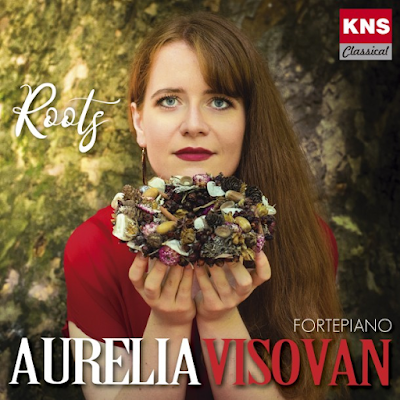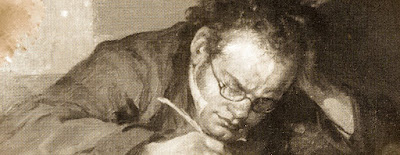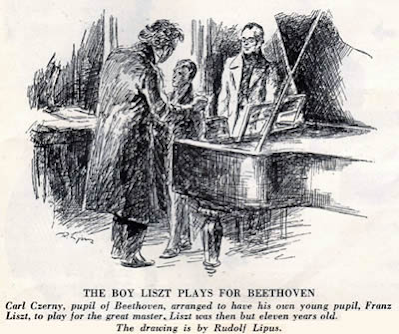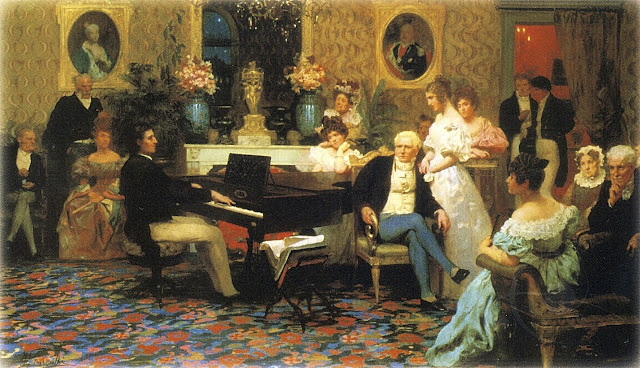Aurelia Visovan plays Mozart, Beethoven, Schubert, Czerny and Liszt on various correct and evocative period keyboard instruments
This early sonata was written in 1774 when Mozart was merely 18. The opening Allegro assai was full of cheerfulness and wit, rather like a dance. The Adagio, of which Mozart was always a master, is curiously in F minor, a rare excursion for him into the minor mode in a sonata. It is inturned and reflective with a true depth of melancholic feeling. The brief Presto is full of striking dynamic differences which Visovan made much of as a contrast. The instrument suited this delightful writing to perfection.
L.van Beethoven - Sonata Op.10 No.2 in F major
(fortepiano built by Robert Brown after Michael Rosenberger c. 1805)
This is a fine example of a Beethoven sonata written between 1796 and 1798. The opening Allegro in F major betrays the immense influence of Haydn on the writing of his early sonatas. The frequent and mercurial changes of mood and dynamic, the alterations of melodies, indicate a genius for expressing musical wit and humour. Visovan understands this well.
The Menuetto. Allegretto in F minor is a significant contrast as the cantabile music moves into philosophical reflection and seriousness. This prepares one for a striking distinction once again in the short, enthusiastic and fugal Presto.
Visovan has a commanding technique whose sparkling articulation makes the polyphony as transparent as a small firework. The earlier 'slender sound' of the instrument suites the sound palette Beethoven clearly had in mind, far superior to the rich rounded Romantic impact of a full modern concert instrument.
This work always makes my hair stand on end no matter how it is played. For me it is the absolute apex of Romantic expression, a magnificent musical structure second only to his Sonata in B minor expressing a true fear of death and the Christian horror of losing the throw of dice and being thrown into the Inferno. However perhaps one must be a true believer to enter this piece and have at home a skull on the mantle as a momento mori of what is in store for all of us. Dante and Milton combine here in terrifying substance....
Visovan with her fine tone and refined touch, presented us with a haunting introduction, as if calling from the soul, a dark rumble of existential premonition only possible on the bass of such a period instrument. She showed passionate, even a possessed, intense penetrative energy disciplined by a strong sense of structure. She made excellent use of expressive silence and pianissimo dynamics, as important in music as sound. There was a feeling of irresistible forward momentum in the narrative, literary emotions of the work. The obsession with literature and poetry by nineteenth century composers is too often overlooked when studying their works. The contrast of reflective lyricism was affecting and full of attractive details and moments of song.
Overall I felt a sense of disturbed existential anxiety in this performance, perfectly appropriate to Liszt's intentions. Glowing and threatening landscapes of the musical mind. Visovan opened a revealing window onto a passionate, less controlled Romantic musical psyche and lyricism that always seemed to be hidden beneath her other more classical 'period' performances, or so it seemed to me. She has a rare talent for expressing that unique Lisztian emotional abandonment, a celestial, almost religious atmosphere yet perfumed from afar by ominous fumes of loitering, hellish sulphur. Yes, the Inferno ...
The colour balance and timbre variation of registers on this Steingräber instrument with her brilliant technique was deeply expressive, yet avoided any sense of hysteria. Incidentally, Liszt played this instrument in 1878 and also on occasion for Cosima and Richard Wagner in Bayreuth.
 |
Franz Schubert (1797-1828) - Sonata in C minor D 958
(fortepiano after Jakob Bertsche (Vienna c.1816) copied by Robert Brown in 2015)
The great 'late' Schubert Piano Sonata in C minor D 958, was one of three sonatas written in 1828 just three months before his death at the scarcely 'late' age of 32. How do you like this composer's personality to be presented by a pianist? In pastels with subtle finesse or in a more declamatory fashion, in strongly coloured oils or arguably both? The instrument itself becomes a vital component in creating this complex landscape and the spiritual significance we glean from the associations conjured by the sheer variegation of sound, tone and touch possible on it. All this naturally is in addition to the harmonic structure of the music. In the recording Visovan plays a remarkable fortepiano after Jakob Bertsche (Vienna c.1816) copied by Robert Brown in 2015.
The eloquent colour palette Visovan extracts from this instrument seems infinite in its variety - poetic, seductive, subtle but when required strong and even aggressive with a roughened 'masculine' texture. I have often conceived acute visual impressions in Schubert when played by an fine, experienced artist on a quality period instrument. These pictures give rise to affecting reflective thought. A feeling of endless wandering through evocative mood landscapes takes possession of me, one of different degrees of intensity and emotional association. The Wanderer Fantasy is a fine case in point. So many Schubert melodies are derived from song, dramatic silences and dreams that are powerful enough to strikingly arrest the forward movement of the soul.
Beethoven was a God for Schubert. The lurking spectre of Beethoven is ever present. However, I feel this sonata is a recollection of Beethoven (the deeply expressive Claudio Arrau understands this). The sonata is not a simplistic imitation or attempted recreation of that titanic Force of Nature. The choice of key is significant. Beethoven’s Fifth Symphony, the 'Pathétique' Sonata, the Third Piano Concerto, and the final Piano Sonata, Op. 111, all live in the key of C minor, as does the 32 Variations of 1807 to whose opening theme Schubert refers as his sonata opens. C minor is a dark and forbidding key for Beethoven, a key of conflict.
The restless, agitated Allegro opening movement of the Schubert settles into a stark conclusion. The Adagio was possessed of a velvet serenity with Visovan, refinement and tenderness - cantabile elements of inescapable Schubertian song. There were moments too of passionate interruption as if grim reality is suddenly remembered. For me his sonatas are profoundly associated with his song cycles such as the melancholic Winterreise where the shadow of death looms menacingly, even terrifyingly, over the utterance and the story. However the philosophical inner wrestling of the soul in the Adagio in 'late' Schubert, the breathless hesitation as the abyss opens at one's feet, requires a high degree of personal maturity and cruel, crippling experience that I felt Visovan had perhaps mercifully not yet encountered in life.
The Menuetto-Trio was presented with strength yet with great sensitivity. But was the fatalistic question of the continuance or interruption of life sufficiently eloquent? There were also moments of poetry and playfulness. In her control and passionate expression of the relentless 'horse-gallop' rhythm of the final Allegro I admired as well her many expressive dynamic alterations and contrasts. The wild and desperate tarantella rhythms do not end in a triumph over destiny as they might have done in Beethoven. The hurtling night-ride through life to the banks of the Styx ends rather gloomily.
Examining the tumultuous emotions contained within this sonata, it is fairly well accepted that it is somewhat autobiographical and shot through with dark anticipations of oblivion only relieved by a few fluffy clouds of sweet nostalgia. Much unaccustomed emotional content is revealed in this sonata by Visovan on this rare instrument.
Carl Czerny (1791-1857) - Sonata No.6 in D minor Op.124
Grande sonate pour le pianoforte seul
(fortepiano after Jakob Bertsche (Vienna c.1816) copied by Robert Brown in 2015)
Introduzione. Adagio sostenuto ed espressivo
Capriccio appassionato. Allegro energico
Allegretto con moto, vivace
Presto, scherzo
Cantique de la Bohème : varié
Presto scherzando
Finale. Allegro con fuoco
Scarcely anyone thinks of the Austrian composer, teacher and pianist of Czech origin, Carl Czerny (1791-1857), in the role of composer. He is considered rather as a dusty highly utilitarian pedagogue, a Professor Smellfungus who tortured our childhood piano lessons with endless exercises (and in many ways still does). He was the best-known of the pupils of Beethoven. When Czerny was six months old, his father took a job as a piano teacher at a Polish manor and the family moved to Poland, where they lived until the Third Partition which prompted the family to return to Vienna in 1795.
He first met Beethoven in 1801. Alice Mitchell in Grove tells us Beethoven selected Czerny as pianist for the premiere of his Piano Concerto No.1 in 1806. At the age of 21, in February 1812, Czerny also gave the Vienna premiere of Beethoven's 'Emperor' Concerto. Czerny wrote that his musical memory enabled him to play virtually all of Beethoven's piano works by heart without exception. During the years 1804–1805 he used to play these works in this manner at Prince Lichnowsky's palace once or twice a week, with the Prince calling out only the desired opus numbers! As a teacher of Liszt and Thalberg, this anecdote is quite extraordinary.
THE BOY LISZT PLAYS FOR BEETHOVEN
Carl Czerny, a pupil of Beethoven, arranged to have his own young pupil, Franz Liszt to play for the great master composer and pianist. Liszt was then eleven years old. In writing, later, of this meeting, Liszt said, 'I played the first movement of the Concerto in C major; and, when I had finished, Beethoven grasped me with both hands, kissed me on the forehead very softly and said, "Go, thou art blessed; because you will bring joy and blessings to many others. There is nothing finer or more beautiful in all the world.'
The drawing above is by Rudolf Lipus (1893-1961)
I found this immense, seven movement, fifty minute Czerny sonata an astounding creation, a compositional revelation in the powerful yet lyrical manner in which Visovan performed it on the period instrument. As with the Schubert sonata, the spiritual and compositional influence of Beethoven is ever present. Yet this an utterly unique compositional voice that carried me aloft with excitement and reflectiveness. I must explore the symphonic compositions of Czerny soon. They remain unknown to me.
In a way, the sonata reminded me of the first disturbing occasion as an adolescent I heard the Hammerklavier sonata played by the then fourteen year old Daniel Barenboim. Beethoven is forcing the limits of the piano of the day as is Czerny in this sonata. The tension one feels because of this is so enlivening and exciting.
One only has to look at the titles of the various movements to gather some idea of the monumental variety of inspiration and formidable keyboard virtuosity that lies within this relatively unknown and unfamiliar work. One can well understand Czerny's admiration of Beethoven's improvisational skills and love of variations in say the Cantique de la Bohème : varié. The sound palette and varied timbres and textures obtainable by a sensitive pianist such as Visovan are remarkable. Her wide experience on this Robert Brown copy of the 'period' Jakob Bertsche Viennese instrument is clear. The commanding keyboard virtuosity of Visovan transports us into another world of emotional reference and response.
Visovan has a distinct, individual voice, innate, deep Romanian musicality and clearly something to say. Rare qualities indeed.
I cannot recommend this CD too highly as causing a deep reassessment of this cold and immobile pedagogical statue into a living, emotional man of the greatest passion and poetry.









Comments
Post a Comment